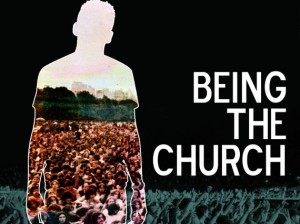 Kregel sent me a copy of What the Old Testament Authors Really Cared About: A Survey of Jesus’ Bible, edited by Jason DeRouchie.
Kregel sent me a copy of What the Old Testament Authors Really Cared About: A Survey of Jesus’ Bible, edited by Jason DeRouchie.
By the title, I expected a Christologically-centered survey of the Old Testament, which, frankly, would be a welcome addition to the typical Old Testament survey fare.
Most Old Testament surveys operate under the assumption that what follows later in the Bible (i.e., the New Testament), should not be read back into the Old Testament. So when scholars write about the Old Testament, they primarily seek to understand only what the original human authors and original human audience understood when the text was written.
I do not deny that such studies should be of primary importance for understanding the biblical text. But what such approaches fail to recognize, is that the human authors and audience were not the primary author or audience. Since the Bible is an inspired book, God is the primary author of Scripture, and since He has a view toward the redemption of all humanity from the predicament we find ourselves in, God’s primary intended audience is all people throughout time.
So anyway, I was hopeful that What the Old Testament Authors Really Cared About would fill the void that is missing in Old Testament studies, and show us what God meant when He inspired the authors to write the various books of the Old Testament, and how these books point to and were fulfilled by Jesus Christ. Ultimately, I was hoping that this book would show us how Jesus Himself read and understood the only Bible He had, namely, the Jewish Scriptures.
The book started off great. The opening chapter by Jason DeRouchie showed how the organization of our modern English Bibles is not the same organization that Jesus would have known, and this opening chapter also showed that the constant and recurring themes of the Old Testament authors are also the constant and recurring themes in the life and ministry of Jesus. Themes such as exile and redemption, the inauguration of the Kingdom of God, and how Christ is the climax of the various covenants were all discussed in this opening chapter. So far, so good.
But then something happened. I am not sure what. The rest of the volume contained summaries of each book of the Bible by various scholars and professors. They presented the main idea of each book, gave a synopsis of the outline and thoughtflow in the book, and discussed some of the major themes. But one thing that seemed missing from nearly every chapter was the one thing that I thought I was reading: the chapters were missing explanations of how these Old Testament books pointed to Jesus or were understood by Him.
For the most part, the rest of the book seemed like every other Old Testament Survey I have ever read.
Maybe DeRouchie as the editor for the book did not adequately explain to the contributing authors what exactly the purpose of this book was. Maybe he figured that having read the opening chapter, we the readers could fill in the blanks for the rest of the book. Maybe the failure was completely on my part to connect the dots between the opening chapter and the chapters that followed. I don’t really know.
So I suppose that when it comes to Old Testament surveys, this one is just as good as any other. It just doesn’t seem to fit the bill of what the cover and the first chapter led me to believe I was reading.
 Having said that, however, there is one main reason I cannot recommend this particular Old Testament survey. My complaint will actually be a reason which many people will find this to be one of the best surveys available. My complaint is this: Most of the chapters (including the first one) seemed to focus not so much on pushing the reader toward Jesus Christ, but toward John Calvin.
Having said that, however, there is one main reason I cannot recommend this particular Old Testament survey. My complaint will actually be a reason which many people will find this to be one of the best surveys available. My complaint is this: Most of the chapters (including the first one) seemed to focus not so much on pushing the reader toward Jesus Christ, but toward John Calvin.
Sure, Calvin was never mentioned by name (that I recall), but Calvinistic themes were evident throughout the book. Themes such as God’s supremacy and sovereignty, the depravity of man, God’s wrath toward sinners, the redemption of the elect through God’s irresistible grace, and the idea that God’s holiness required a judicial, substitutionary atonement in the form of retributive judgment.
I, for one, am not convinced that this is indeed the way Jesus understood His Bible. I don’t think Jesus was a Calvinist (or at least, held the theology that Calvin and his followers later taught).
If you’re a Calvinist, of course, then you will think this Old Testament survey is great (which helps explain all the Calvinistic endorsement in the front). But if you’re not a Calvinist, then you will frustrated by this survey, as it seems that according to the authors, no matter what happens in the Old Testament, it is done “for the praise of God’s glory.”
In the end, it appears that “What the Old Testament Authors Really Cared About” is Calvinsim. Since I am not a Calvinist (nor an Arminian!), I will stick with some of the other Old Testament surveys on my shelf.






 Social justice has been a controversial topic in Christian circles for several decades. Part of the controversy is whether or not Jesus taught His followers to practice social justice.
Social justice has been a controversial topic in Christian circles for several decades. Part of the controversy is whether or not Jesus taught His followers to practice social justice. A full explanation would take a full book, but let me see if I can summarize three of the highlights:
A full explanation would take a full book, but let me see if I can summarize three of the highlights: So when it comes to Jesus and His Gospel message, I don’t think He would side with either of the two main groups in the social justice debate.
So when it comes to Jesus and His Gospel message, I don’t think He would side with either of the two main groups in the social justice debate.
 Twice a month our group picks up trash on the streets and in the parks of an inner city neighborhood. We also try to smile and greet everyone who passes. Over the past few years this has resulted in some amazing conversations with people who hate churches and would never dream of attending one.
Twice a month our group picks up trash on the streets and in the parks of an inner city neighborhood. We also try to smile and greet everyone who passes. Over the past few years this has resulted in some amazing conversations with people who hate churches and would never dream of attending one. Twice last summer our group cleaned one block sections of alleys. The first one was the dirtiest and most overgrown alley in that inner city neighborhood, and took us several mornings to complete. At the end of the final morning, we shared lunch together and invited the neighbors whose houses backed up to the alley. A few joined us, and a long term relationship was formed with one family.
Twice last summer our group cleaned one block sections of alleys. The first one was the dirtiest and most overgrown alley in that inner city neighborhood, and took us several mornings to complete. At the end of the final morning, we shared lunch together and invited the neighbors whose houses backed up to the alley. A few joined us, and a long term relationship was formed with one family. Graffiti is a significant problem in most inner city neighborhoods. After checking with the city, we found that many areas have a group that volunteers to paint over graffiti. However, most groups have very few volunteers and are always on the lookout for people who will help. The job requires old clothes and an hour or two of time. This is also an opportunity to engage people in the neighborhood in conversation as they walk by or when they come out of their homes to say thank you.
Graffiti is a significant problem in most inner city neighborhoods. After checking with the city, we found that many areas have a group that volunteers to paint over graffiti. However, most groups have very few volunteers and are always on the lookout for people who will help. The job requires old clothes and an hour or two of time. This is also an opportunity to engage people in the neighborhood in conversation as they walk by or when they come out of their homes to say thank you. Want to be the church in your community but don't know? Here are some posts which not only explain what it means to be the church in your community, but also gives concrete, practical examples of what it looks like and how to be the church whatever you do and wherever you go.
Remember, you ARE the church, and wherever you go, Jesus goes with you!
Want to be the church in your community but don't know? Here are some posts which not only explain what it means to be the church in your community, but also gives concrete, practical examples of what it looks like and how to be the church whatever you do and wherever you go.
Remember, you ARE the church, and wherever you go, Jesus goes with you!

 Of course, do we Christians really believe that Jesus was right? It often seems that we do not. We often seem so intent on believing the right things, and knowing the right things, and doing the right things, and forcing other people to believe, know, and do the right things also, that we neglect to actually show love.
Of course, do we Christians really believe that Jesus was right? It often seems that we do not. We often seem so intent on believing the right things, and knowing the right things, and doing the right things, and forcing other people to believe, know, and do the right things also, that we neglect to actually show love.